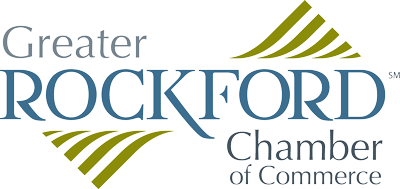Helping local companies mitigate tariff risk
Tariff-day has arrived, sending waves of uncertainty across the C-suites of global companies. How long can my cash flow absorb the impact of my inventory carrying costs suddenly increasing 10-25%? It’s questions like this that are keeping CEOs and CFOs up at night.
If your company is seeking to mitigate risk to its financial stability from new tariffs on your imported components and inventory, activating your facility as a foreign trade zone (FTZ) could reduce your cash flow risk.
The Greater Rockford Airport Authority offers the Foreign Trade Zone program to companies across Northern Illinois as a tool to defer the customs entry process, reducing the immediate cash-flow impact of tariffs and potentially reducing total tariff costs. Every company has a unique trade flow that must be reviewed on a case-by-case basis, but here are the main ways an FTZ can mitigate the impact of tariffs:
Defer tariff payments to improve cash flow
Activating your facility as an FTZ allows you to import foreign products and hold the inventory in your facility indefinitely, deferring the payment of import tariffs until your product leaves your facility and enters U.S. customs territory. If your product leaves your facility to be re-exported or transferred to another FTZ or customs bonded facility, then your tariff payment may be eliminated (in the case of re-export outside of USMCA territory) or further deferred (in the case of zone-to-zone transfer).
Eliminate tariff payment on re-exports outside of USMCA territory
If your imported components are re-exported outside the U.S., Canada, and Mexico, then you may be able to eliminate your import tariff completely. This is because your imported product never enters U.S. customs territory—it is destined for export, and your FTZ provides a platform for global commerce outside of U.S. customs territory.
Product that is re-exported to Canada or Mexico needs to be evaluated on a case-by-case basis as to whether the import tariff may be eliminated. (Imported components that are inputs to final products manufactured in the U.S. need to clear through U.S. customs before being re-exported to Canada and Mexico due to USMCA regulations.) If you are re-exporting to Canada or Mexico, you should consult with a trade attorney to discuss how an FTZ may benefit you. FTZ #176 can help coordinate a feasibility analysis.
Eliminate tariff payment on scrapped material
For scrapped product that never enters U.S. customs territory, Customs and Border Protection (CBP) may authorize the product to be destroyed in your FTZ, eliminating the tariff payment completely. The tariff does not apply to product that is sold for scrap value, but specific authorization must be provided by CBP to take advantage of this benefit.
Should you activate as an FTZ
Take a look at your warehouse and estimate the value of your imported components or products. Let’s say it’s worth $1 million, and you’re facing a new 25% tariff. The cash flow impact of the new 25% tariff could be $250,000. Is your company prepared to take that hit to its cash flow? With a $250,000 impact on cash flow, activating your facility as an FTZ can easily payoff in its first year. With the cost of cash still relatively high and not likely to come down quickly given inflationary pressures, the cash flow benefits of activating as an FTZ will continue to payoff.
How to activate as an FTZ
The FTZ #176 service area encompasses Winnebago, Stephenson, Ogle, Lee, DeKalb, and Boone counties, as well as portions of Bureau, McHenry, Kane, Putnam, and LaSalle counties. If you are located in that service area, we can walk you through the process of activating your facility as an FTZ through the grant of authority of the Greater Rockford Airport Authority. It takes some investment, but it could be worth it in the long run.
The views expressed are those of the author(s) and do not necessarily represent those of the Greater Rockford Chamber of Commerce.
